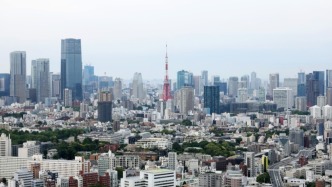
A Nikkei article published on August 1st highlighted the urgent need for Japan to strengthen its ’Global Human Resources’ development. This policy, actively promoted by the Japanese government since around 2010, aims to cultivate individuals capable of playing significant roles on the global stage, driving Japan’s economic revitalization and maintaining its competitiveness in the global economy. With the active support of the government and businesses, Japanese universities are also competing to become designated ’super global universities’.
However, 15 years on, the policy’s effectiveness has been far from remarkable. Between 2014 and 2019, Japanese young adults I interviewed in Australia and Singapore generally showed little interest in it. “I’ve heard the term for ten years, yet such fanfare indicates that Japanese society hasn’t truly internationalized,” remarked Shiro, a 32-year-old Japanese national working in Sydney. Kumiko and Kotaro, a couple holding work visas in Singapore with extensive international work experience, remained hesitant about returning to Japan. Kumiko stated, “If I don’t conform to Japanese expectations, such as wearing formal attire and adhering to specific etiquette, I won’t be valued.” Kotaro added, “A typical Japanese company would treat me as a secondary player.” For young, elite professionals from neighboring countries, Japan does not appear to be an ideal career choice. In 2018, at a lecture at a Singaporean university, employees of Japanese companies asked students whether they liked Japan; all raised their hands. However, when asked if they wanted to work for a Japanese company, no one responded. The reason cited was a lack of clear career progression, insufficiently open communication, and an overall restrictive environment in Japanese companies.
Karen, a 29-year-old Singaporean woman, stated, “Japan is suitable for tourism, but not for living, especially for foreigners; it is quite stifling. I don’t want to be a ’second-class citizen’ in Japan.” A friend of hers had previously resigned from a large Japanese company due to discrimination. Currently, ’global human resources’ does not seem geared towards attracting globally diverse talent but rather focuses on cultivating Japanese individuals proficient in Japanese, familiar with Japanese culture, and loyal to the nation and their companies, while possessing global business capabilities. Therefore, Japanese university students constitute the primary talent pool. However, even Japanese individuals with an international perspective may not be able to alter the status quo. They are leaving Japan precisely because of the lack of a multicultural environment in Japanese workplaces.
Another challenge facing “Global Human Resources” is gender inequality. In 2023, women comprised only 27.2% of full-time employees in Japan; among large companies, the proportion of female executives was approximately only 4% to 5%. Typical “Global Human Resources” project expatriates are almost exclusively male. In other words, the project could be summarized as “Making the Japanese economy great again, but with Japanese men.” How can this situation change? The generation that experienced rapid economic growth and the bubble economy is gradually retiring, and the future will be taken over by a younger generation that is more independent, less reliant on companies, and more culturally diverse. This could lead to a shift in Japan’s workplace environment. The next step is to revitalize the economy in a way that differs from the past. (Author: Kato Etsuko, translated by Jiang Li)